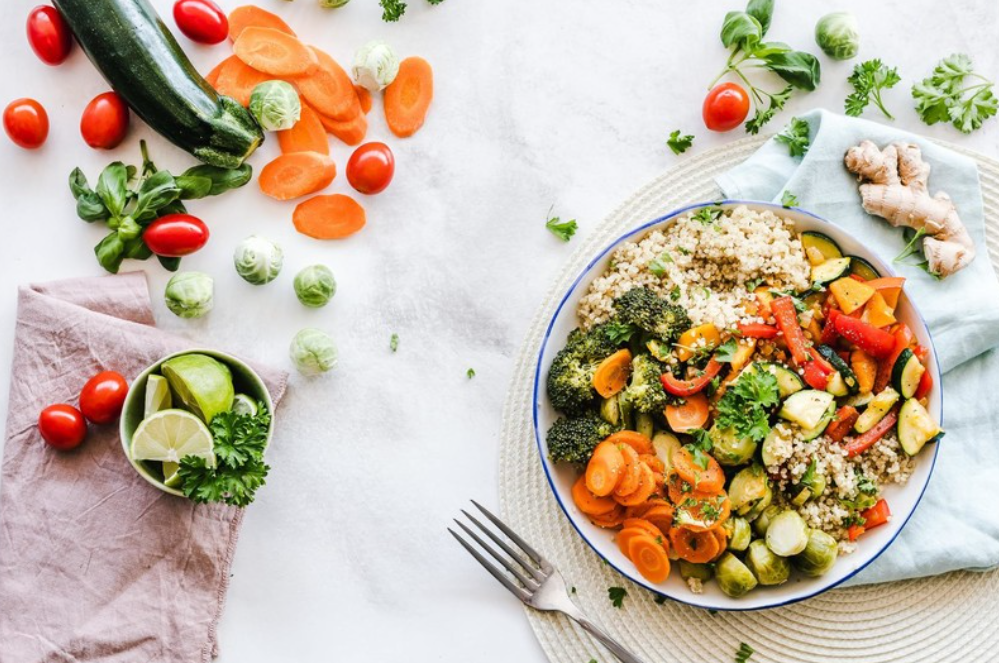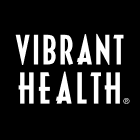
Complete List of Superfoods to Add to Your Diet
Ancient cultures have been leaning on superfoods for ages, reaping the many nutritional benefits. And in today’s world, health-minded individuals are still incorporating these age-old foods into their diets as a way to maintain a healthy lifestyle. In this article, we’ll dive into exactly what a superfood is and share a complete list of superfoods — from spirulina to quinoa — with ideas for how you can add them into your diet.
What Is a Superfood?
You may be wondering, what is a superfood, anyway? A superfood is a term popularly used to describe whole foods that are incredibly nutrient-dense and considered to be especially beneficial for health and well-being. These foods are typically high in vitamins, minerals, antioxidants, fibers, and various other nutrients. The concept is not strictly defined in nutritional science, but it is widely used in marketing and by the media to highlight the health-promoting properties of certain foods.
Comprehensive List of Superfoods
As mentioned, there are many types of superfoods, and they don’t all fit into one box. To simplify, we put together a complete list of superfoods categorized by food type.
Fruits
- Berries (Blueberries, Strawberries, Raspberries, Blackberries, Cranberries, Goji Berries): Rich in antioxidants, vitamins, and fiber; support digestion and immune health.
- Citrus Fruits (Oranges, Lemons, Grapefruits): High in vitamin C and flavonoids for immune support.
- Cherries: Rich in polyphenols and vitamin C with antioxidant and anti-inflammatory effects.
- Avocados: High in healthy fats and fiber, supporting heart health
Vegetables
- Leafy Greens (Kale, Spinach, Swiss Chard): Dense in vitamins, minerals, and antioxidants; may support healthy cognitive function.
- Cruciferous Vegetables (Broccoli, Brussels Sprouts, Cabbage): Contain cancer-fighting compounds, fiber, and a variety of vitamins.
- Sweet Potatoes: Packed with vitamin A, vitamin C, and fiber.
Read more: The Best Green Superfoods That You Need in Your Diet
Algae
- Chlorella: Rich in folate, iron, and a variety of vitamins; may promote healthy cholesterol levels
- Spirulina: Ancient Aztec superfood rich in protein, B vitamins, copper and iron with antioxidant and anti-inflammatory benefits.
Cereal Grasses
- Wheatgrass: Packed with antioxidants, phytonutrients and 17 amino acids; supports digestion, immune system, and the body’s ability to eliminate toxins.
- Alfalfa Grass: Low in calories but packed with nutrients like vitamin K, vitamin C, and folate; may help lower LDL (bad) cholesterol while boosting HDL (good) cholesterol levels.
- Barley Grass: Rich source of vitamins, minerals, and antioxidants; can support digestion and detoxification.
Read more: What are the Best Grass Supplements?
Grains
- Quinoa: A complete protein containing all nine essential amino acids, rich in fiber, and can help reduce postprandial glycemia.
- Oats: High in beta-glucan, a type of soluble fiber that helps lower cholesterol.
Nuts & Seeds
- Chia Seeds: Excellent source of omega-3 fatty acids, fiber, and quality protein to help support digestion, while reducing blood glucose levels and risk of chronic disease.
- Almonds: High in vitamin E, antioxidants, magnesium, and healthy fats; can support healthy gut microbiota.
- Flaxseeds: Rich in omega-3 fatty acids, lignans, and fiber; can help lower LDL (bad) cholesterol levels while improving HDL (good) cholesterol levels.
Fermented Foods & Beverages
- Yogurt: Packed with protein, calcium, and probiotics which can support gut health.
- Kefir: Rich in protein, calcium and probiotics; can help support immune and gastrointestinal health.
- Kombucha: Fermented tea beverage naturally packed with probiotics to support healthy gut microbiota.
Protein Sources
- Salmon: High in omega-3 fatty acids and protein; supports heart and brain health.
- Eggs: Contain a high-quality protein, alongside vitamins B12, D, and minerals like selenium.
Legumes
- Lentils: High in protein and fiber, supporting digestion and blood sugar control.
- Chickpeas: Offers a combination of protein, fiber, and iron; may support healthy weight management and prevention of chronic disease.
Miscellaneous
- Turmeric: Contains curcumin, a compound with strong anti-inflammatory and antioxidant properties.
- Garlic: Contains beneficial sulfur compounds; enhances the immune system and acts as a natural anti-inflammatory
- Ginger: Contains bioactive compounds with anti-inflammatory and antioxidant properties
- Green Tea: Contains polyphenol epigallocatechin gallate (EGCG) with anti-inflammatory and anti-cancer properties.
- Dark Chocolate (70% cocoa or higher): Rich in antioxidants, fiber, and minerals such as iron, magnesium, and zinc.
- Olive Oil: Rich in monounsaturated fatty acids and contains polyphenols; can support cardiovascular health by promoting healthy cholesterol levels.
- Mushrooms: Packed with antibacterial and immune-boosting properties.
How to Incorporate Superfoods into Your Diet
Now that we’re clear on the many superfoods available at our fingertips, you may be wondering how you’re going to incorporate them into your daily diet. Here are some tips to ensure you’re getting a wide range of superfoods:
- Add More Whole Foods Into Your Diet: When in doubt, stock your kitchen with whole foods, avoiding processed foods as much as possible. When you cook with real, whole food like eggs, leafy greens, and whole grains, you’ll naturally include more superfoods into your diet while weeding out the packaged “junk.”
- Eat the Rainbow: Speaking of whole foods, make an effort to include a variety of colorful produce into your diet for different nutritional benefits by “eating the rainbow.” For example, bright red and purple foods like berries tend to be rich in antioxidants, while orange fruits and vegetables like oranges and bell peppers are high in vitamin C.
- Blend Superfoods Into Your Smoothies & Smoothie Bowls: If you’re a picky eater or don’t like the taste of certain superfoods, experiment by blending them into a smoothie or smoothie bowl. Not only are they delicious, but it’s an excellent way to get your nutrients in.
- Choose High-Quality Superfood Supplements: Consuming a diet chock-full of different superfoods can sometimes be difficult and expensive. Supplements, on the other hand, are an efficient way to consume a variety of superfoods in one convenient, nutrient-rich product.
Best Superfood Supplements to Take
Just as with the superfoods themselves, there is a wide range of supplements—and not all are created equally. Choose a high-quality superfood supplement from a trusted brand like Vibrant Health. Be sure to look into the nutritional profile, ingredients and health benefits, ensuring the supplement is catered to your individual wellness needs.
Green Vibrance
With so many nutrients derived from superfoods inside that it should be considered a superfood itself, Green Vibrance from Vibrant Health tops the list. It covers the entire spectrum of superfoods — including six different types of cereal grasses (like superstar wheatgrass), 14 types of antioxidants, 12 strains of probiotics, and ancient superfoods like spirulina and chlorella.
Not to mention, Green Vibrance offers a wide variety of plant-based micronutrition and fiber, all working together to help support your digestion, circulation, immunity, and overall nutrition. This superfood-powered supplement is the gold standard for nutritional value!
Maximum Vibrance
The only thing Green Vibrance may leave to be desired is that it doesn’t pack a lot of protein. That’s where Maximum Vibrance from Vibrant Health comes in, providing a whopping 20 grams of plant-based protein along with all of the other benefits included with Green Vibrance.
With 150 calories per serving, 20 grams of protein and 4 grams of dietary fiber, this superfood supplement can be used as a meal shake and is excellent for fitness-minded individuals. We love that the protein comes from powerful, plant-based sources like yellow pea protein powder, sprouted brown rice protein powder, and spirulina powder.
Read more: The Best Green Superfood Powders [Expert Reviewed]
DISCLAIMER: This information is not intended as a substitute for advice provided by a competent healthcare professional. You should not use this information in diagnosing or treating a health problem. No claim or opinion in this blog is intended to be, nor should be construed to be, medical advice. If you are now taking any drugs, prescribed or not, or have a medical condition, please consult a competent physician who is aware of herb/drug interactions before taking any herbal supplements. The information presented herein has not been evaluated by the FDA or the Department of Health and is not intended to diagnose, prevent, cure, mitigate or treat any disease or illness.

Why Trust Vibrant Health?
At Vibrant Health, we’ve been pioneers in science-backed nutrition for over 30 years, formulating transparently sourced superfood supplements that prioritize real results. Our blog is an extension of that commitment—a trusted resource for expert-driven wellness insights.
Every article is crafted with nutrition expertise, backed by the latest scientific research, and reviewed by our in-house Certified Health Coaches and Product Educators. We break down complex health topics into practical, actionable advice—helping you make informed choices about superfoods, supplementation, and holistic wellness.As a brand that has earned thousands of 5-star reviews and the trust of health professionals, we ensure that our content reflects the same quality, integrity, and transparency as our products.
Your wellness journey deserves accurate, credible, and empowering guidance. That’s why Vibrant Health’s blog is here—to help you live a healthier, more vibrant life, backed by real expertise




